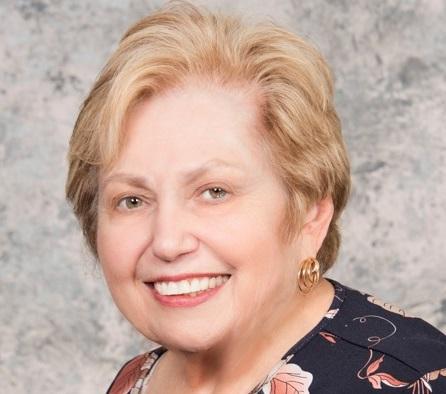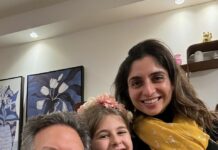
The typical rabbinical student is younger than 86. But not much is typical about Lee Joyce Richmond, professor emerita of Loyola University Maryland and a teacher in Beth El Congregation of Baltimore’s adult education program.
Richmond, 86, lives in Pikesville and has four children, 11 grandchildren and six great-grandchildren.
Originally from Baltimore’s Forest Park neighborhood, Richmond grew up attending Beth Tfiloh Congregation. She was among one of the first groups of students at the synagogue to have a bat mitzvah, and her maternal grandfather, Abraham Morgenstern, was one of the shul’s first vice presidents. While she was interested in religion as a child, spiritual concerns took a back seat after she got involved in Labor Zionism as a teenager.
Initially, Richmond pursued a career in education, and she taught English and history at the Catholic-affiliated Elizabeth Seton High School in the 1960s. She was the youngest teacher at the school, and students would come to her with issues they were having, which often stemmed in part from the school’s socially conservative outlook and the students’ more progressive inclinations.
The experience compelled Richmond to pursue master’s degrees in counseling and education at Johns Hopkins University while she was working at Seton, so she could better help her students.
Afterward, Richmond began working as a counselor at different institutions, and she encountered students dealing with more serious issues, some financial, others related to narcotics. This pushed her to pursue a Ph.D. in human development from the University of Maryland.
Now a licensed psychologist, Richmond has taught psychology and counseling at Johns Hopkins as head of their counseling specialty. She spent 10 years there in total. Afterward, she spent 30 years at Loyola University Maryland, teaching psychology and counseling. This was all in addition to her service as president of the American Counseling Association.
“I’m a shy person,” she said. “If you saw me at a party, I would be very dull. If you see me in a classroom, you would love me as your teacher.”
Richmond became involved in Beth El’s education program after attending a lecture at the synagogue on the Institute for Jewish Spirituality’s Wise Aging program. Intrigued by the subject matter, and knowing that Wise Aging programs were being established at synagogues around the country, Richmond signed up to become a Wise Aging facilitator and begin teaching classes at Beth El.
“It’s about looking at aging in a different way,” Richmond said of the Wise Aging program. “It’s taking the stigma off of aging. It’s looking at what can be positive about aging, and what the Jewish tradition says is positive about aging.”
Richmond’s students normally range from ages 50 to 75, and the topics of the classes include forgiveness, getting along with friends and relatives and the character traits needed to live a good life.
“I taught it once, and the people didn’t want to leave. They continued to meet after the course was over,” Richmond said. “I taught it again, and the same thing happened.”
Currently, Richmond is enrolled in a one-year rabbinical program organized by the Jewish Spiritual Leaders Institute, an online rabbinical and cantorial school based in New York. She expects to be ordained in either December or January. She does not intend to become a pulpit rabbi, Richmond said. Rather, she signed up primarily due to her interest in spiritual and interfaith matters and because her grandson, a Conservative rabbi, encouraged her to.
“I’ve always had [an] interest,” she said. “So the thing is it’s COVID. Why not do it?”
Most of Richmond’s fellow rabbinical classmates are at least 20 years younger than she is, she said.
“They were skeptical at first,” Richmond said. “Everybody says, ‘Why do you want to do this?’ I wanted to do it to learn. I’ll become a better teacher because of it. … At the time I engaged in it, I didn’t know where COVID was going, and I thought there might be people who needed the kind of help I could learn to give.”







